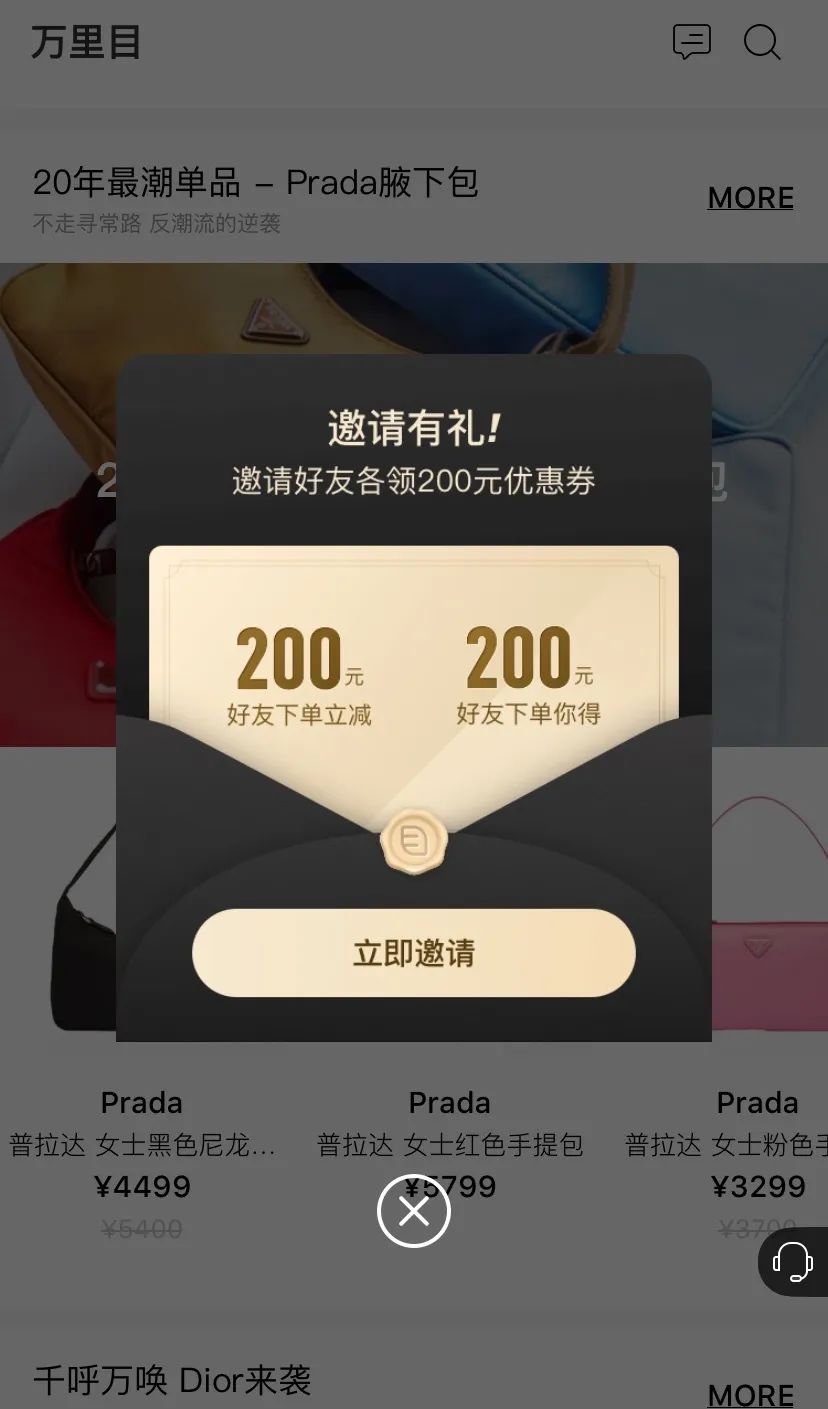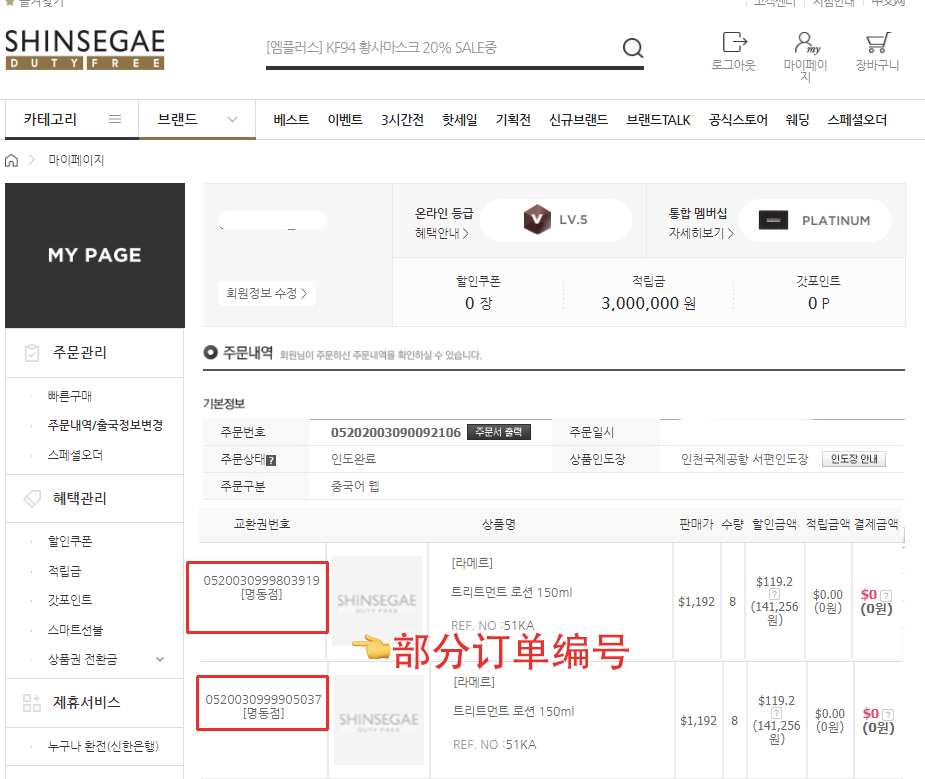Can China‘s Newest Luxury E-Commerce Player Take Off?
Wanlimu has made a splash in China's luxury e-commerce market with its celebrity marketing campaigns and low prices
by Queenie Yao & Ker Zheng
Over the past few months, the global luxury sector has been in freefall due to global lockdowns caused by the Covid-19 pandemic. However, there is one exception in China that has managed to defy all expectations: Wanlimu, a Chinese luxury e-commerce platform has seen skyrocketing growth after launching in the depths of the Covid-19 crisis in March.
The platform was founded by parent company Qudian, a NASDAQ-listed P2P lending platform based in the southeastern tropical city of Xiamen. Qudian launched Wanlimu after Chinese authorities cracked down on the P2P lending sector in November, forcing the company to pivot. We take a closer look at Wanlimu and discuss some of the keys to its success.
How Wanlimu Uses Social Commerce to Appeal to Middle Class Consumers
Wanlimu's proposition is that it makes luxury products more affordable for China's rising middle-class consumers.
The Wanlimu app shows that its main categories are footwear, handbags, apparel, and cosmetics, with major brands including La Mer, SK-II, Sisley, Lancôme, Gucci, LV and Chanel.
Though the middle-class customer base has seen large salary increases over the last several years, the cost of living in China's Tier 1 cities has also risen in tandem.
Social commerce is playing a key role in doing this.
Newcomers to Wanlimu's mobile app are greeted with a social commerce offer: invite a friend to join and the user and the friend can receive 200 RMB in subsidies. This is part of Wanlimu's 10 Billion RMB Subsidy program.
Additionally, those who sign up for a black-card membership is eligible to receive a 200 RMB coupon and 10% discount on all future items.

Invite friends to receive 200 RMB in coupons
Such a program is taking a page out of Pinduoduo's strategy book: the social commerce platform, along with Tmall's Juhuasuan and JD.com have each rolled out similar programs to drive sales.
For luxury purchases, such programs make a big difference in attracting customers, due to the higher-value nature of the items.
The main question is how long will these subsidies last and will new customers remain sticky? After all, China e-commerce is rife with discounts and it's not difficult to find a better deal on another e-commerce platform. As a smaller player, it remains questionable whether Wanlimu will be able to survive in the long run.
Wanlimu Invested Heavily in Digital Marketing and Partnerships with KOLs & Celebrities
Wanlimu has also invested heavily in other sales & marketing campaigns.
The platform partnered with numerous top KOLs and KOCs through their WeChat accounts, where content linked to Wanlimu's e-commerce mini-program.
Celebrity marketing was also a key part of Wanlimu's success. In May, the platform worked with five top-profile actors and actresses, including Zhao Wei and Huang Xiaoming, to promote the platform. Each of them has over 40 million followers on Weibo.

Wanlimu's warm-up content on WeChat account
During China's Labor Day holiday in May, Wanlimu set up a livestreaming session with all five of them on Douyin/Tiktok, generating over 130 million views.
Working with such celebrities adds further to the entertainment aspect of e-commerce; customers aren't just looking to purchase items but also for a form of entertainment. Hiring China's A-list celebrities is one way to gain quick traction as a newcomer to the indudstry.
Wanlimu Buys Inventory Directly from Global Suppliers to Maintain a Luxury Experience
And yet the biggest challenge to any e-commerce company remains supply chain operations.
Procuring products at a low price, matching supply with demand, and ensuring a positive logistics experience for the end customer is a challenge for any player in the industry, especially since the low-margin nature of e-commerce of China leaves little room for error.
To create a full luxury experience, Wanlimu has been using a direct retailing model, meaning that it buys and sells inventory, as opposed to a marketplace model that enlists third-party merchants to sell on its platform.
Wanlimu has a team of buyers based overseas and key relationships with major brands, distributors, and resellers, through which it imports products in bulk.
Such a direct purchasing model is key, because it gives Wanlimu complete oversight over the supply chain and customer experience, ensuring that the company can guarantee product authenticity in an industry that is rife with fake goods.
To build upon this aspect, Wanlimu has partnered with the China Certification & Inspection Group (CCIC), which is responsible for quality control in its warehouses.
And to convince users of the authenticity of its products, Wanlimu product pages will show where the product is from, providing direct screenshots of purchase orders, invoices, order records and other details.

Order history on Wanlimu's WeChat account
Currently, Wanlimu is procuring large quantities of high-end skincare products from duty-free stores around the world, particularly from Korean conglomerates such as Lotte, Shilla, and Shinsegae. These companies have suffered indiscriminately from Covid-19 lockdowns, as they previously obtained large portions of their revenues from Chinese tourists.
It is likely that Wanlimu is procuring inventory at a high discount from such players, who are relieved to be able to offload unsold inventory in this difficult environment. This has been key to its low prices, which are key to attracting Chinese customers.
Sourcing Remains a Challenge
And yet sourcing remains a challenge for Wanlimu.
The problem with procuring imported inventory from suppliers around the world is that the same brand may have different versions and packaging for different countries.
That is, a brand selling the same skincare product in Europe versus Thailand may have different lettering, instructions, and packaging, raising concerns amongst Chinese consumers who are wary of purchasing fake products online.
The current dearth in global shipping capacity is also making things difficult - many Wanlimu customers have issued complaints such as "not yet shipped" or "delayed delivery". To remedy this issue, Wanlimu is partnering with HNA Group's Hainan HNA Duty-Free Commercial Holding Company, which is running operations in China's latest new duty-free zone, Hainan province.
All in all, maintaining a strong customer experience is crucial when targeting higher-end luxury customers.
The issue is that maintaining a quality experience requires significant capital outlays and a lot of the right pieces to fall into place.
Wanlimu has made quite a splash in China's luxury market this year, but can it provide an experience on par with that of Tmall and JD.com? It remains to be seen.
Key Takeaways
1. Wanlimu is a new luxury online retailer that relies on social commerce tactics and celebrity/KOL marketing to draw in customers
2. Wanlimu uses a direct purchasing and retailing model, in which it procures inventory directly from global suppliers, ensuring that it has complete oversight over its supply chain.
3. Customers have reported some issues with shipping, likely due to logistical problems caused by global Covid-19 lockdowns. It remains to be seen whether Wanlimu can provide an experience on par with its larger competitors, especially given the high costs it must incur to maintain solid supply chain operations.